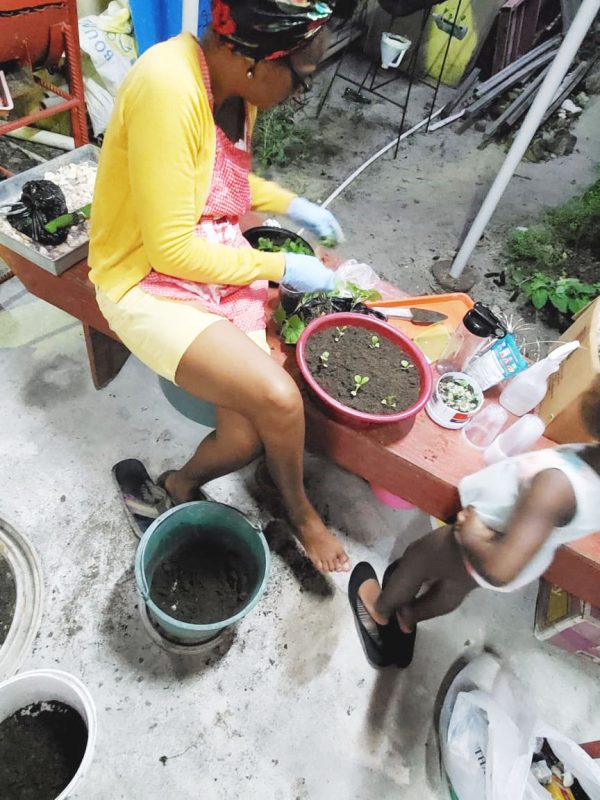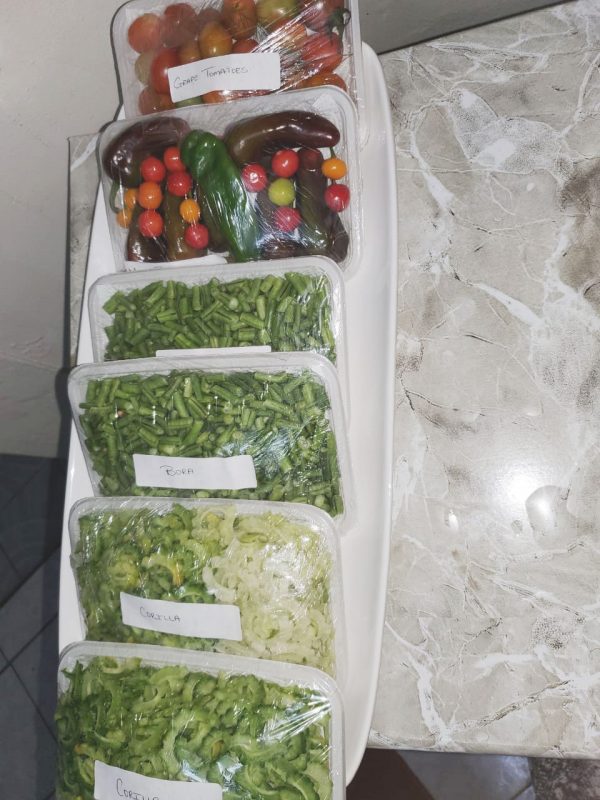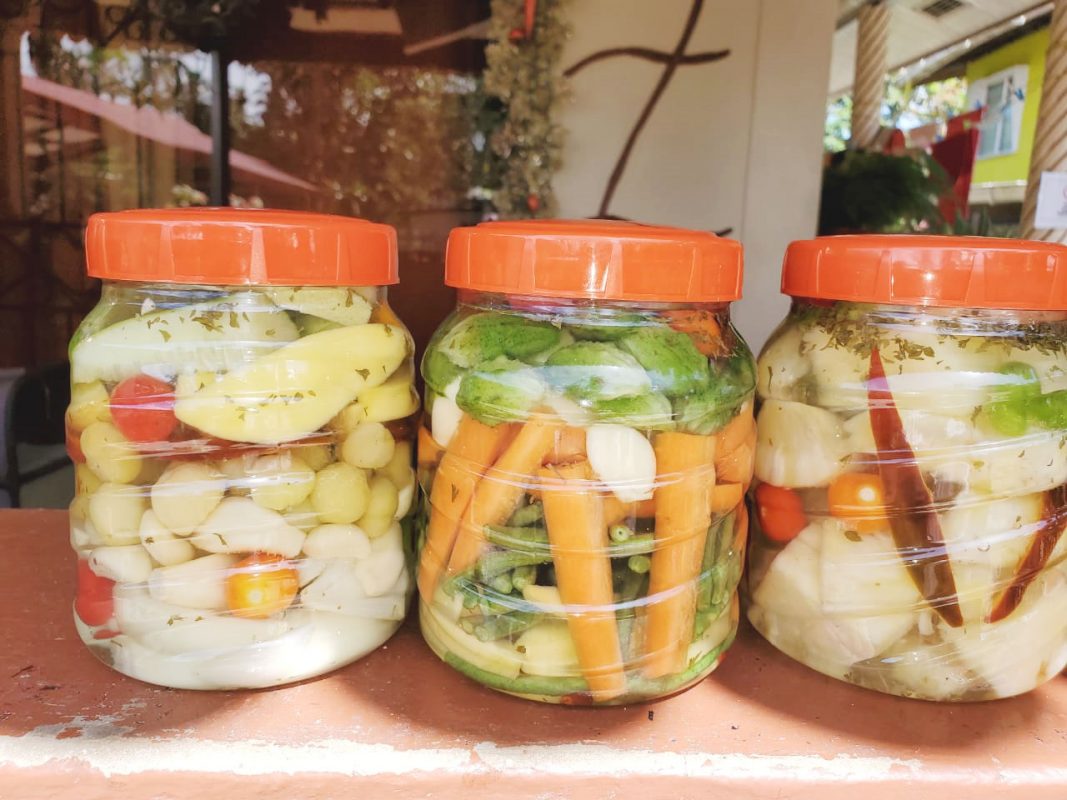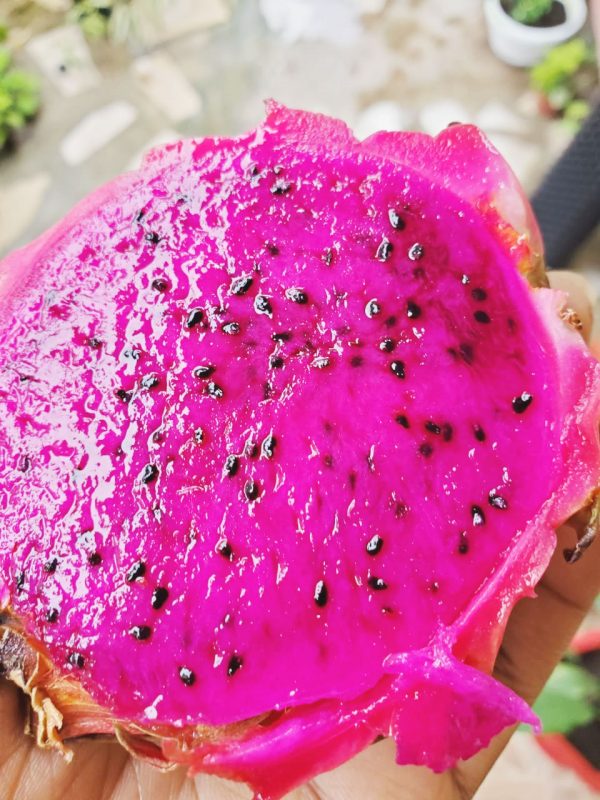 Karen Rogers is a strong believer in eating healthy which is why she plants her own garden to ensure all of her fruits and vegetables are organically grown. That produce also features in the food she prepares through her business, From the Garden to the Kitchen.
Karen Rogers is a strong believer in eating healthy which is why she plants her own garden to ensure all of her fruits and vegetables are organically grown. That produce also features in the food she prepares through her business, From the Garden to the Kitchen.
It has been a decade since Rogers’s garden has been feeding her family as well as residents of her community at Linden. However, it was only a year ago that she decided to come up with a name for the business and arrived at From the Kitchen to the Garden.
The famer and businesswoman, who currently resides in Blueberry Hill, Wismar, ran out of yard space to do her farming. She subsequently expanded to a family plot in another community situated along the road leading to Mabura, three miles from where she lives.
Rogers grows a variety of vegetables, including butternut squash, bora, ochro, thyme, basil, four types of kale (dinosaur, red Russian, blue and curly), broccoli, cauliflower, dragon fruit, winged beans, three types of tomatoes (garden, grape and black which are native to Ukraine), carilla, sage, lemon balm, lettuce, peppers, cucumber, pumpkin, red beans, parsley, celery, cassava, carrot, and strawberries. She also sells seedlings of many of these plants.
To grow the strawberries, Rogers said, she began with eight seedlings. She pointed out that the leaves should not get wet when one is watering the roots and the soil should be neither dry nor wet but more in the middle as in moist. The plant grows in a large pot and has runners which can be cut to be replanted. For the soil, she used a little bit of potting soil, bush coal and fowl mould.
“The strawberries, you can’t grow them in the hot sun. I would have them on the eastern side of my garden so they only get the morning sun and by the time the sun gets hotter, there is already shade on them. Right now I got them under my verandah because of the rain,” said Rogers.
Her plants have been spared the current flooding because both areas where she farms are on high ground.
Rogers grew up in a single parent home. Her mother, who had ten children, raised eight of them to adulthood. Her mother, she noted, was always farming, and this activity has been part of her life for as long as she can remember. Today she and a sister still farm and assist each other on their farms.
Farming is therapeutic, Rogers said. Planting, she said, adds joy to her life. Many days she would spend from 9 am until sometimes as late as 10 pm in her garden.
All of her plants are grown with manure and compost. She said at one point she grew cabbage but that vegetable seems to be a magnet for insects. A farmer has two choices when planting cabbage, either to spray pesticides on the plant every three days or grow it organically and barely have anything left after the insects have taken their fill.
Rogers confided that she did spray the plant with pesticides on two occasions but hated that she could not grow the vegetable organically. The last time she planted cabbage, she did so without pesticides but when there was not much to salvage after the insects had fed on it. She said she has made peace with the fact that this is one vegetable she will not grow. Ironically, though she is working with earth almost daily, Rogers is afraid of worms, including earthworms and the ones found in the cabbages.
To acquire cow manure, her husband makes special trips to the East Coast Demerara, where he sources it from a cattle farmer. She also recently began using chicken manure for some of her plants, which she said has been working much better. With the cow manure, the plant has to be topped up with manure every now and again until the end of its bearing, whereas with the chicken manure, a one-time use is enough. She boasted that when she used the chicken mould for her lettuce, one produced more than 25 leaves. However, getting chicken mould is more difficult as people recognise its benefit for their plants and are reluctant to give it away.
Rogers sells produce at the Wismar Market every last Friday of the month. One challenge she has, she said, is that while customers would eye her lettuce they go for the chemically produced ones because they are cheaper. As such she has been forced to drop her price.
Many people, Rogers said, are still ignorant about organic produce and those who walk away from her stall only wait long enough to hear the price and leave before she could tell them about it. She wishes there was a television or radio programme where farmers like her could talk about the difference between organic and non-organic produce as well as the importance of eating healthy.
Aside from selling at the market, Rogers has customers turning up at her home daily; some to purchase vegetables and seedlings, others to buy flowering plants. Rogers has a separate plant business called Inside Garden where she sells a variety of flowering plants and plant pots.
Meanwhile, her catering business is operated several times a month. She revealed that every month, she has an average of four or five events to cater for. The vegetables, fruits and fresh herbs used in the preparation of the meals come from her garden.
“Not all the food on an event menu is from my garden. For the chicken and pasta and things like that, those will have to be bought. For the cream horns that I make, the little green vegetables in it are from my garden, the dill I use in my food is from my garden, the celery I use in the meat is from my garden, the vegetables in the salad are from my garden, the tomatoes, the kale and cucumber, all from my garden,” she shared.
“I plant my own seasoning. For years I haven’t gone to the market to buy green seasoning.”
She also pickles carilla, bora, and cucumbers for sale as well fruits like dounce, mangoes and golden apples, which she has to purchase. The jarred pickles are among her customers’ favourites.
Rogers’s plants and dishes can be viewed on the Facebook page From the Garden to the Kitchen. She can be reached at 602-8259.









